Introduction: In this article, Jane Hampton Cook searches old newspapers to discover how early our American ancestors were playing football. A former White House webmaster, Jane is the author of 10 books, including “Stories of Faith & Courage from the Revolutionary War.” Her upcoming titles on the American Revolution are “The Submarine” and “Spies and War of Lies – When George Washington Was the Target and Propaganda Was the Crime.” See: Janecook.com
Editor’s Note: In most of the world today, the term “football” refers to the game Americans call “soccer.” It may surprise you to learn that back in the early 18th century, when America was still a British colony, the settlers played a game they called football. The game they were playing was a combination of soccer and rugby – and the origins of those two games go back to antiquity. Over time innovations, such as the shape of the ball and the forward pass, were introduced – and this game evolved into the “American football” which will be played this Sunday in the Super Bowl.
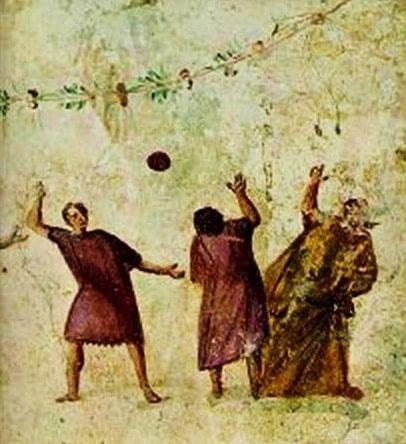
I recently binged in GenealogyBank’s Historical Newspaper Archives by making numerous searches for an upcoming book about the American Revolution. After discovering that American spy Nathan Hale recorded that he played football in his diary in 1775 in Boston, I decided to search more broadly for the words “foot ball” and “football” in GenealogyBank’s collection. With the National Football League forming in 1920, it is easy to assume that football is a relatively new term. The old newspapers, however, confirm that the term football is centuries old here in America.
The first American newspaper reference to football I found was published in the American Weekly Mercury in 1725.

This article reported an incident from London:
An unhappy accident happened on Monday morning last in Fleet Street, where, as some young men were playing at football, a coach came amongst them, the pole of which struck an unhappy youth on the head, knocked him down and broke three of his ribs, and so fractured his skull, that he died that evening.
Football was played by young men in the streets, and on rare occasions by women. A surprising report about women playing football was published in the Weekly News-Letter in 1727.

This article reported an incident from Bath, England:
Yesterday a new and extraordinary entertainment was set on foot for the diversion of our polite gentry; and what should it be but a match at football, played by six young women of a side, at the bowling green!
The Virginia Gazette revealed that football was being played on America’s shores when it reported on Hanover County’s festivities on St. Andrew’s Day in 1736. As a British colony, Virginia followed the British holidays, including the feast day for St. Andrew, who was one of Christ’s disciples and served as Scotland’s patron saint. Hanover County was planning on celebrating St. Andrew’s Feast Day with “dancing, singing, football play, jumping, wrestling, etc.”
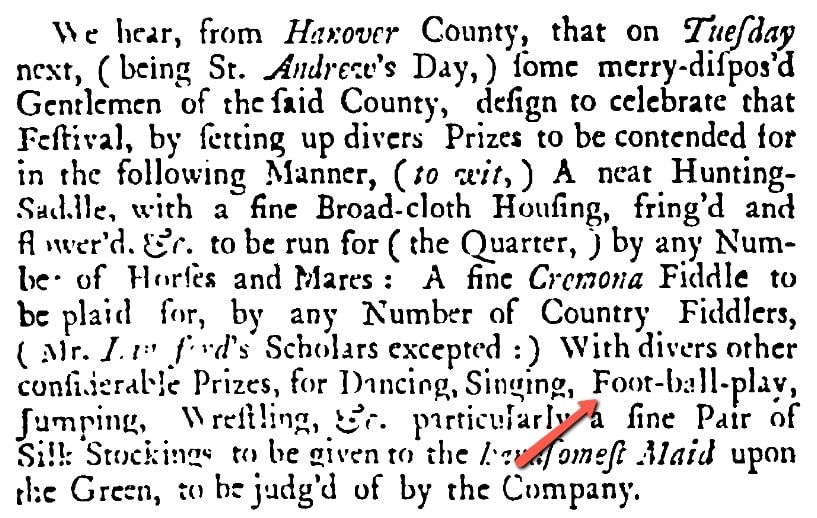
The Boston Weekly Post Boy showed that football was being played in New England in 1739.

This article reported:
We hear from Martha’s Vineyard, that on Friday the 23rd of March past, an Indian fellow being at football with others upon that island, immediately after he had given the ball a kick, fell down dead.
Football was used as a metaphor for making fun of Salem, Massachusetts, in a poem published in the New-York Weekly Journal in 1738.
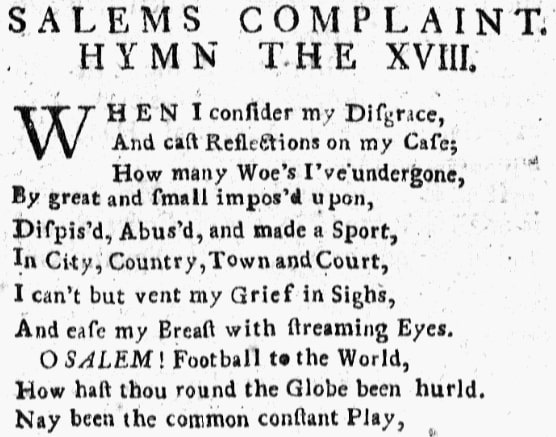
This poem included such lines as “Oh Salem! Football to the world, How hast thou round the Globe been hurled” and “Despised, abused, and made a sport; In city, country, town and court.” The poem reflected the ball’s shape: “And, bladder like, now here then there; Been bounced about then God knows where.”
Samuel Johnson included the word “football” in his 1755 dictionary. His definition gives us insight into the ball itself: “A ball commonly made of a blown bladder cased with leather, driven by the foot.” Johnson’s dictionary also quoted Shakespeare’s use of football: “Am I so round with you as you with me; That like a football you do spurn me thus?”
The Georgia Gazette published an article in 1766 on the competitive nature of the game.

According to this article:
This spirit of rivalship, which heretofore reigned in the two universities, is extinct, and almost over betwixt college and college. In parishes and schools, the thirst of glory still obtains. At the seasons of football and cockfighting, these little republics reassume their national hatred of each other. My tenant in the country is verily persuaded, that the parish of the enemy hath not one honest man in it.
Football was played by General Washington’s soldiers when they camped in Lower Manhattan in 1776. A friend of Captain Nathan Hale, who died for being an American spy, later reflected that Hale could kick the ball over the trees at the Bowery in New York.
Hale was a graduate of Yale College, which has a strong tie to the history of football. The rules of modern football were born a century after Hale, thanks to a Yale football player named Walter Camp.
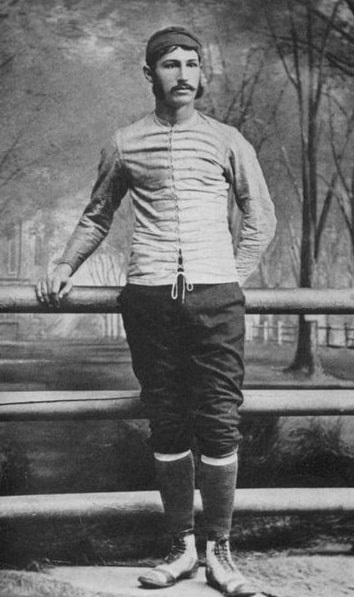
Known as the “Father of American Football,” Camp was a football player, coach and sports writer. The Yale football team lost only two games in four years under Camp’s leadership as head coach. Contributing to the rules for collegiate football, he created football’s line of scrimmage and the system of downs.
The Springfield Republican published Camp’s 1889 essay reflecting on the timeless need for pluck in football.
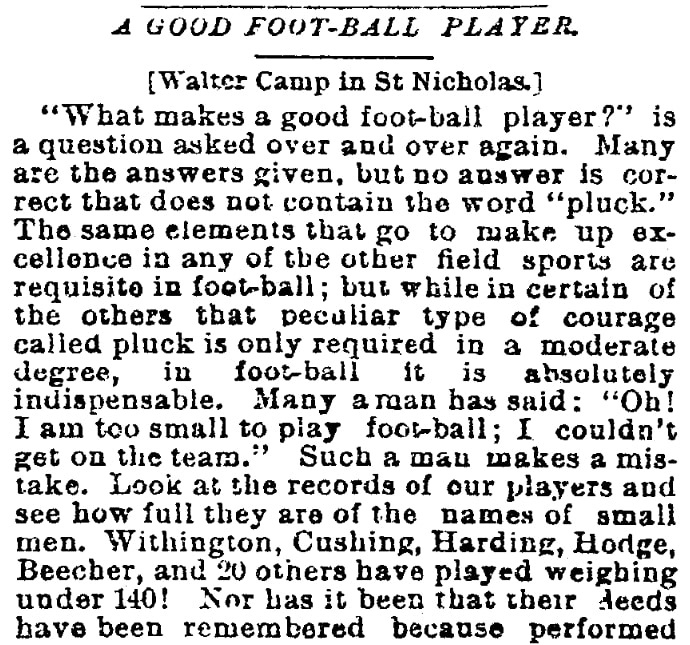
Camp wrote:
“What makes a good football player?” is a question asked over and over again. Many are the answers given, but no answer is correct that does not contain the word “pluck.” The same elements that go to make up excellence in any of the other field sports are requisite in football; but while in certain of the others that peculiar type of courage called pluck is only required in a moderate degree, in football it is absolutely indispensable.
Thanks to Camp, football became an organized sport played among colleges and grew into one of the most beloved professional sports in the United States, as the must-watch Super Bowl proves year after year.
Explore over 330 years of newspapers and historical records in GenealogyBank. Discover your family story! Start a 7-Day Free Trial
Note on the header image: the 1876 Yale Bulldogs, national football champions. Walter Camp is standing with arms crossed. Credit: Wikimedia Commons.
